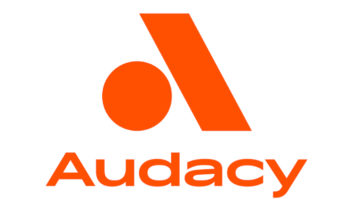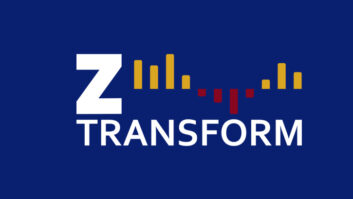
Harris Corp. found a buyer for its broadcast business in relatively short order, as Randy Stine reports in this issue of Radio World. The efficiency of that process and the announcement of its outcome are good news for customers and employees who understandably may have been unsettled by the decision to sell such a legacy part of its business.
To my eye, Harris Broadcast has long been something of a special case among U.S. radio manufacturers.
Its parent company is publicly held, so its financial reports are subject to open scrutiny. The size of the division, if not unique in broadcasting, is uncommon in radio; and its products are used widely around the industry. These factors make the Harris broadcast business a market bellwether.
Also for those reasons, its business decisions, such as staff reductions during soft markets, or changes in leadership and sales structure, tend to be reported by the general and broadcast trade press, more so than at other radio companies.
Such corporate changes have at times frustrated some fans of the company’s legacy, who felt that upper executives (never the ground troops) were not fully cognizant of Harris’ role in the history of our industry. The company seems to attract a circle of past employees who are vocal about how it is managed; this phenomenon is common with large business organizations but unusual in radio manufacturing, where the majority of companies are relatively small.
Further, its size and reach sometimes made Harris Broadcast a target of comment over the years by competitors who could not match its economy of scale.
And then there is the company’s long and rich history in radio. This has engendered affection for the brand but also strong feelings about any change.
For all of these reasons, the sale of its broadcast business attracts more interest than others might.
Message of continuity
Now comes The Gores Group.
Its website cites its “ability to create value in situations characterized by complexity and operational challenges.” It says it specializes in buying businesses that are undergoing “change in capital structure, strategy, operations or growth and can benefit from Gores’ operational and strategic approach.”
It tries to buy companies that have “a defensible core business, mature products or services, sustainable revenues, established customer relationships, and that have reached a transition point in their lifecycle presenting an opportunity for transformation.”
That sounds like a reasonable description of Harris Broadcast (indeed, of broadcasting).
Private equity brings a different kind of management model. Will this new ownership bring a shift in Harris products, resources or corporate culture? What kind of an owner will Gores be; how well will it tolerate the challenges of the broadcast market; how long is its horizon? How will these questions affect equipment users?
Answers remain to be discovered. But Gores appears to be a careful buyer that knows what it is doing, one that will not overpay. It has a broad spectrum of interests, with current or past investments in networking and communications firms, health care and women’s apparel. According to news reports, a proposed buyout of Pep Boys fell through last spring; earlier it was in discussions to buy some Borders stores before that company liquidated.
I would like to hear more about the buyer’s perceptions of the broadcast marketplace (in which it is also active through its investment in Dial Global). Does the driving force behind this purchase include a belief in the power of radio and TV? Presumably yes; then why? What does Gores see, with its fresh perspective, that makes broadcast manufacturing worth its money? Share your vision with us.
Gores sent a welcome message of continuity in its early moves; and broadcasters value continuity. They want a personal relationship with their manufacturers, particularly RF suppliers. A station wants to know that the builder of that box will be around in five or 10 years.
Of course, Gores could turn out to be an owner that seeks to squeeze out costs and flip its asset to the next buyer as soon as possible; that’s not the vibe I get, on admittedly early evidence. What broadcasters want to see, and what Harris division managers appear to believe they have, is an owner that will bring new resources as well as new flexibility that might not have been possible under its previous corporate structure.
Nevertheless it seems realistic to expect Gores to make big changes at some point, given that the new owner highlights “operational transformation” as an important part of its strategy. And, because we’re talking about a private equity firm, one founded “with the single vision to buy, fix and sell businesses,” it seems reasonable to expect an eventual sale rather than decades of Gores ownership, though such a process reasonably would take years.
Meantime, some observers find the price Gores paid to be low considering past Harris acquisitions that are now part of the division. If so, that is only good news for the buyer, which for its money has acquired a strong brand, an established product base, a broad international presence and talented people. This could well turn out to be a value buy.
Recent years have been challenging for many broadcast manufacturers. The industry they serve is subject to so many economic and marketplace headwinds; the task of maintaining and growing an international business based on that infrastructure is difficult and costly.
Harris Broadcast fans can hope that this transition will allow the company to react to market forces more quickly and be freed at least from the unrelenting demands of a public quarterly financial report; now it will face different demands.
We’ll watch with interest to see how and whether Gores nourishes it to encourage expansion and product development; or restructures to save money; or some combination of both. We wish it success though. We’re pleased when any company invests in broadcasting; further, this particular broadcast business holds a unique place in radio history; and its ongoing challenges and successes will likely mirror our industry’s own.












